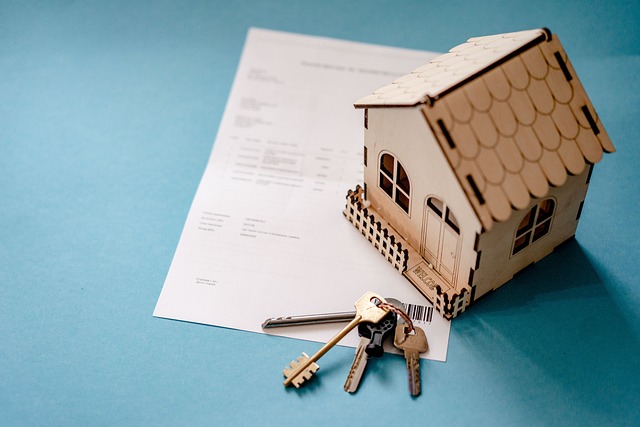Singapore's Executive Condominium (EC) resale market offers a unique opportunity for Singaporean citizens to purchase affordable housing with access to luxurious amenities. To be eligible, buyers must not own any residential property and have a household income of up to SGD14,000. EC units are designed for first-time homeowners and come with a stipulation that the unit must be occupied as a primary residence for at least five years before it can be sold on the open market. This policy ensures long-term affordability and availability within the community. The Five-Year Minimum Occupancy Period (MOOP) also discourages speculative flipping and stabilizes the resale market, while the resale levy aims to prevent frequent transactions that could exploit the subsidized nature of ECs. After fulfilling the MOOP, owners can sell their units without restriction, but if they purchase another EC or a private property before this period, they must pay the resale levy, which is based on the average price of a five-room resale flat at the time of the first EC purchase. When reselling an EC, strict adherence to HDB regulations and submission of all necessary documents, including proof of occupation for at least five years, CPF contribution settlement, and application forms, are mandatory. Legal counsel is advised to navigate this complex process efficiently, ensuring compliance with all regulatory requirements. Understanding these conditions is critical for anyone considering an EC resale unit in Singapore's property landscape.
Executive Condominiums (ECs) in Singapore offer a unique housing option for those aspiring to upgrade from public to private property. Prospective buyers often explore EC resales, a route that comes with its own set of rules and regulations. This article demystifies the process, starting with eligibility criteria for purchasing an EC resale. We delve into the implications of the five-year minimum occupancy period post-privatisation, ensuring clarity on how this affects resale opportunities. Further, we shed light on the resale levy that potential buyers must consider when acquiring an EC. Additionally, we outline the necessary legal steps and documentation required to complete an EC resale transaction smoothly. Navigating these rules is crucial for a seamless purchase; this guide serves as your comprehensive guide to the nuances of buying an EC resale in Singapore.
- Understanding the Eligibility Criteria for Purchasing an Executive Condo (EC) Resale in Singapore
- The Five-Year Minimum Occupancy Period and Its Implications for EC Resale
- Navigating the Resale Levy: What Buyers Need to Know About ECs in Singapore
- Legal Considerations and Documentation Required for an Executive Condo Resale Transaction
Understanding the Eligibility Criteria for Purchasing an Executive Condo (EC) Resale in Singapore

In Singapore, purchasing an Executive Condominium (EC) resale unit is a viable and attractive option for many homeowners due to its hybrid nature—partially private and partially public—offering a balance between affordability and luxury. Prospective buyers must adhere to specific eligibility criteria set forth by the Singapore government to ensure that the EC remains accessible to eligible applicants. To begin with, applicants must be Singapore citizens at least 21 years old. They should also not own any other residential property at the time of application. This includes private condominiums, landed properties, and HDB flats, as well as any directly or indirectly-owned properties locally or abroad. Moreover, applicants’ combined household income should not exceed SGD14,000. Beyond this, they must intend to use the EC as their primary residence for a minimum occupation period of 5 years before they are allowed to sell it on the open market as a private condominium. This policy is designed to protect the interests of first-time homeowners and maintain the affordability of ECs for eligible applicants. Understanding these criteria is crucial for anyone considering the purchase of an EC resale unit in Singapore, as compliance with these rules is necessary to complete the transaction successfully.
The Five-Year Minimum Occupancy Period and Its Implications for EC Resale

When considering the resale of an Executive Condominium (EC) unit in Singapore, one must be aware of the Five-Year Minimum Occupancy Period (MOOP). This regulation stipulates that EC owners are required to occupy their unit as their primary residence for a minimum of five years before they can sell it on the open market. The MOOP is a key policy measure designed to ensure that a significant proportion of EC units are first lived in, thus contributing to the housing supply for married or engaged couples and their families. This rule not only promotes responsible ownership within the community but also helps to stabilize the resale market by preventing speculative flipping of these properties. For potential EC residents, this means that if you plan to purchase an EC with the intention of reselling it quickly, the MOOP will be a barrier. However, for those who intend to make an EC their long-term home, this policy provides a stable foundation for residential living and later investment opportunities. The MOOP also safeguards the initial buyers’ investments by preventing a rapid depreciation in property values that might occur if units were frequently resold shortly after purchase. As such, understanding the implications of the MOOP is crucial for anyone involved in the EC resale market, as it directly affects the liquidity and pricing dynamics within this niche segment of Singapore’s real estate landscape. EC buyers who are looking to sell their units after the five-year mark should be prepared for a robust transaction process, including the necessary paperwork and compliance checks to ensure adherence to these guidelines.
Navigating the Resale Levy: What Buyers Need to Know About ECs in Singapore

When considering the purchase of an Executive Condominium (EC) in Singapore, understanding the resale levy is crucial for potential buyers. The resale levy is a condition that applies to Singaporean citizens who are looking to upgrade from their current EC to another EC or to a private condominium. Introduced to promote a healthy market for ECs, this levy prevents individuals from repeatedly buying and selling ECs at subsidized rates without contributing to the diversification of their property portfolio.
Upon the sale of an EC, the original buyer is subject to this levy unless certain conditions are met. The amount payable is based on the average price of a five-room resale flat in a non-mature estate at the time of acquisition of the first EC. This financial consideration acts as a deterrent against the frequent switching between ECs and public housing, ensuring a more stable market for these properties. It’s important for buyers to consult the CPF Board or access the Singapore Land Authority’s resources to ascertain their eligibility and the precise levy amount applicable to their situation. This knowledge empowers buyers to make informed decisions when navigating the resale market for ECs in Singapore.
Legal Considerations and Documentation Required for an Executive Condo Resale Transaction

When considering the resale of an Executive Condominium (EC) in Singapore, legal considerations and the requisite documentation are paramount to ensure a smooth transaction. Prospective sellers must be familiar with the eligibility criteria as set out by the CPF Board. As per the Housing & Development Board (HDB) regulations, only Singaporeans who have fulfilled the minimum occupation period (MOP) of 5 years can sell their EC. The seller must also ensure that all outstanding payments to the CPF Board for the purchase of the EC are settled prior to the resale.
The documentation required for an EC resale transaction is comprehensive and includes the following: a completed resale application form, proof of identity (National Identity Card), the sale and purchase agreement, and a copy of the EC’s floor plan. Additionally, both the buyer and seller are required to submit a resale application form to the HDB for approval, which involves checking if the resale transaction contravenes any rental restriction or ownership restrictions. Furthermore, the seller must provide a clearance letter from the CPF Board indicating that all outstanding housing loans have been repaid. The lawyer handling the transaction will also prepare necessary documents such as the Deed of Assignment and ensure that stamp duties are paid accordingly. It is imperative to engage a lawyer early in the process to navigate these requirements effectively.
When navigating the intricacies of purchasing an Executive Condominium (EC) resale in Singapore, understanding the associated rules and regulations is paramount. This article has demystified the eligibility criteria for potential buyers, highlighting the importance of the five-year minimum occupancy period post-privatization. Prospective buyers must also be cognizant of the resale levy implications, as outlined in our discussion. Legal considerations and the necessary documentation are critical to a seamless transaction, ensuring compliance with Singapore’s property laws. By thoroughly reviewing these aspects, buyers can confidently engage in the EC resale market, making informed decisions that align with their long-term housing goals.



